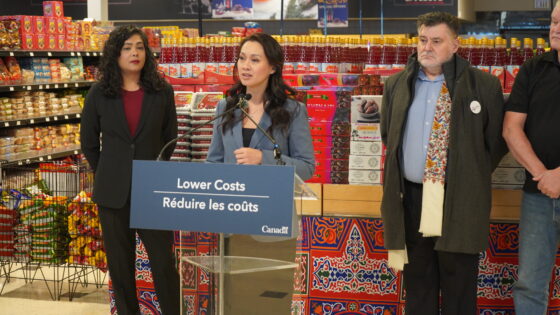on
BY JAY BRIJPAUL
Let’s face it, oil is a much-needed commodity and Guyana has more than enough to go around. At the 2019 AAPG Annual Convention in San Antonio, Maria Guedez, manager of Guyana for Exxon Mobil, said “new discoveries will make Guyana one of the wealthiest countries per capita in the Western Hemisphere, bringing infrastructure and prosperity to the region.”
US President Joe Biden recently said that “Guyana is a strong democracy, and I look forward to strengthening our bilateral relationship based on shared principles of good governance, prosperity, and security.” His words are an indication that Guyana is moving forward from a country of poverty to a country of prosperity.
Oil revenue is expected to be close to $170 billion US dollars within the next ten years. By 2025, Exxon expects its production to reach around 750,000 barrels per day. Guyana is already enjoying some of the benefits from the discoveries. Over 1,900 Guyanese people are employed in the oil industry and the oil giant is pumping around $220 million to local contractors. JPMorgan head for oil and gas, Christyan Malek, said that “We’re going to be short of oil before we don’t need it in the years to come… We could see oil overshoot towards, or even above, $100 US a barrel.”
With all the oil rush, there is an ever-increasing appetite for safe housing accommodations within close proximity to Georgetown. Local developers and builders are racing to corner this market. Buddy’s Housing Development, for example, has built communities such as Green Acres, a gated community with paved roads, streetlamps, a shopping centre, swimming pool, tennis court and a basketball court. Many international hotel chains started construction and are hoping to open doors by 2023.
Georgetown, the capital of Guyana, is a bustling city where real estate prices are constantly climbing. Buying a home in Georgetown is still reasonable with the current exchange rate. There are plenty of choices; from gated communities to luxury mansions welcoming the relaxing Atlantic Ocean breeze.
Other than the downtown core, Guyana has numerous small villages where you can buy properties as low as $50,000 US dollars. Many expatriates are returning to Guyana in their golden years, trading the cold for the warmth, oxygen rich land with an abundance of fresh nutritious foods and a relaxed lifestyle. Immigration is on the upswing. Many of the immigrants are entrepreneurs with a burning desire to buy prime real estate while prices are still within reach.
If you are planning on investing in Guyana, here are a few things to know. Real estate can be owned in four categories: State owned, government owned, private transported (title) land and industrial. The government and state-owned land are considered leased land.
Leased land can be acquired by submitting a letter of interest to the relevant authorities. If the land is available for a long-term lease, the interested party must submit an application and pay the relevant inspection fees. The application is reviewed and if approved, a survey is required. The term of the lease is for fifty years with certain rights given to the lessee such as the right to renew, sublet, transfer or mortgage. Land leases are granted mostly for commercial uses such as minding, forestry and oil.
Most residential and commercial properties in Guyana are private, transported land. A transport is the Dutch system of ownership similar to having land title, and the British system of ownership. Guyana has a mixture of both the Dutch and British land registry system.
The Guyana multiple listing services, a system where all realtors post their properties for sale, provides a wide range of homes. A potential buyer can search based on criteria such as location, type of properties and price range. While the country is different, the fundamentals of real estate are the same. First shop by location, then size of the property and finally upgrades.
When buying properties in Guyana, 2.5% of the sale price or the current value is paid to the registrar. This fee is usually paid equally between the buyer and the seller. There is a conveyance fee of 1% paid to the attorney. It takes an average of three months to advertise a transport and then transfer to the buyer. Buyers and sellers must prepare a purchase of sale agreement with closing dates exceeding three months to be on the safe side. To facilitate the transfer, the seller needs to provide the original title document along with a valid identification. The seller must obtain a certificate of compliance from The Guyana Revenue Agency and their local municipality stating that the seller does not owe any taxes to the Government.
In Guyana, there is 20% capital gains tax paid on the profit of the property as of 1991. However, properties held for over twenty-five years are exempted from capital gains. Rental income is taxed at a flat rate of 33.33% while inheritance tax is only .5% for properties exceeding one hundred thousand Guyana dollars.
Knowledge is the best advantage when you are eyeing real estate. I encourage anyone who is interested in buying properties in Guyana to visit the country for a few months. This way, you can get a feel for the environment, the people and the culture. I am a firm believer that if you buy premium properties, you can then enjoy and eventually sell premium.
Stay in the loop with exclusive news, stories, and insights—delivered straight to your inbox. No fluff, just real content that matters. Sign up today!
Jay Brijpaul is a 29 year Toronto Real Estate veteran and one of Canada’s top Real Estate Brokers. He has been involved in over 3000 Real Estate sales representing both buyers and sellers. His team, The Brij Team, is consistently among the top RE/MAX residential teams in Canada and around the world. Since 1994, Jay became a member of the Fellows of Real Estate Institute of Canada (FRI), giving him an additional 5 years of Real Estate training beyond what virtually all Real Estate agents have.













